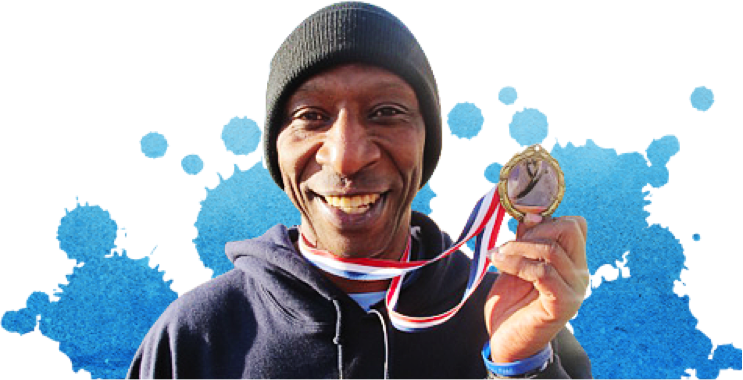Section Branding
Header Content
Running Program Helps Atlanta Homeless
Primary Content
An Atlanta nonprofit is using running to help the homeless and those at risk of becoming homeless.
Participants agree to train three times a week with volunteers. Those who stick with it get help with education, employment and housing.A veteran speaks to GPB's Ellen Eldridge about a local running program that helped him get his life back together.
Risk factors for homelessness range from mental health issues to unemployment and a lack of affordable housing.
READ MORE: What Can The Fair Housing Act Tell Us 50 Years Later?
Georgia had at least 10,373 homeless people during a point-in-time count in January 2017, according to the state Department of Community Affairs.
George is a veteran who started running with a local nonprofit program in 2013. He asked that we only use his first name.
Before finding the Back On My Feet Atlanta organization, George struggled with substance use disorder.
"I had been in and out of a few VA drug and alcohol treatment centers, and prior to that I had been a couple of times in and out of jails and prison," he said.
During the summer of 2013, George tried to return to school and set his life on a better path.
"But I didn't really have a good, solid foundation, so I went out and relapsed," George said.
Despite his mistake, the Veterans Association put George in the Gateway Center, an Atlanta facility with 369 beds for men who enter into programs geared to address the underiying reasons for their homelessness, such as unemployment, addictions, mental illness or domestic abuse, according to the organization's website.
By December 2013, George was able to commit to waking up early and running with the group.
"I got involved with them and doing service work," George said. "And I got back in school and, you know, they supported me during school."
The running program provided George with a healthy outlet and a computer so he could take online classes as a technical college.
Now, he has a job, a stable situation and a positive outlook on his life and accomplishments. The sense of accountability helped him in his sobriety as well.
"It just gives you a sense of pride to be part of such a great family, such a great team," George said.
George now has a job and will be running Saturday in his fifth Meaningful Miles 5K.



